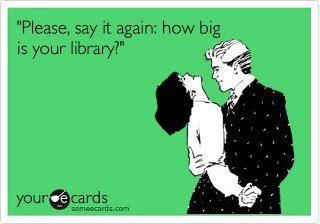
From http://thehearttruths.com
At different times in our lives and in different situations, most of us tend to look at our personal relationships, our teams, our organizations, and our governments through one of two sets of glasses: “blind trust” (naivete) or “distrust” (suspicion). At times, we may even go back and forth between the two.
These glasses have been created by a number of factors, including the way our parents and grandparents may have seen the world, the experiences we’ve had in our personal and professional lives, the people we interact with, the things we read, the things we watch, and the things we listen to. However, most of us don’t even realize that we have these glasses on.
Only as we understand how we’re seeing the world now can we truly appreciate the difference a new pair of glasses can make.
 From http://quotes-pictures.vidzshare.net/
From http://quotes-pictures.vidzshare.net/
The reality is that there is a high cost to both blind trust and distrust. And whether you’re looking at the world primarily through the lens of blind trust or distrust, neither approach is sustainable in the long term. Those who live with blind trust eventually get burned; those who live with distrust eventually experience financial, social, and emotional losses.
Though we’ve become very good at recognizing the cost of trusting too much, we’re not nearly as good at recognizing the cost of not trusting enough… Though we think we’re being smart in taking precautions to protect ourselves against all the things that can happen in this low-trust world, the cost of this approach can be incredibly high, particularly in terms of prosperity, energy, and joy.

From http://izquotes.com
What is Smart Trust?
Smart Trust is judgement. It’s a competency and a process that enables us to operate with high trust in a low-trust world. It minimizes risk and maximizes possibilities….
The propensity to trust almost always provides the best starting point of Smart Trust… We approach situations with the belief that “most people are basically good,” and the reason we do this is because it opens up a whole new world of possibilities…
 From http://izquotes.com
From http://izquotes.com
To exercise Smart Trust, however, we need to combine a high propensity to trust with equally high analysis. Analysis refers to our ability to assess, evaluate, and consider implications and consequences, including risk.
 From http://www.managementsite.nl
From http://www.managementsite.nl
Smart Trust analysis involves the assessment of 3 vital variables:
- Opportunity: clearly identifying what you’re trusting someone with. E.g., Grameen bank trusts its borrowers to pay back their loans.
- Risk: evaluating the degree of risk involved. What are the possible outcomes? What is the likelihood of the outcomes?
- Credibility: the character and competence of the person or people involved. Just as you likely wouldn’t want to do business with someone who, though very skilled, was a known liar and cheat, neither would you want to do business with someone who was honest but incompetent. Credibility also involves the relevance of the person’s competence to the job to be done. Though you might trust an associate to take over your job while you’re on vacation, you might not trust that same person to cut your hair or operate on your daughter’s knee.
 From http://izquotes.com/
From http://izquotes.com/
Because judgement is developed through experience, we sometimes make mistakes. But the more we can recognize and exercise our propensity to trust and our ability to analyse situation, risk, and credibility effectively and the more we can create the empowering synergy between them, the more successful we will be in creating high-trust relationships and opportunities and increasing prosperity, energy, and joy.
 From http://thefrontofthejersey.com
From http://thefrontofthejersey.com
Trust is contagious. When we extend trust, we generate trust; when we withhold trust, we generate distrust. Our actions lead ether toward a virtuous upward cycle of prosperity, energy, and joy or toward a vicious downward cycle that eventually results in the destruction of those outcomes….
Trust is contagious – and so is distrust: in our personal lives, our families, our communities, our teams, our organizations, our nations, and the world.

From http://izquotes.com
Smart trust involves the following 5 steps:
1. Choose to believe in trust:
- A belief in being worthy of trust
- A belief that most people can be trusted
- A belief that extending trust is a better way to lead

From http://goodngreat.com
2. Start with self – the foundational action to create trust not only in ourselves as individuals but also in our organizations.
 From http://meetville.com
From http://meetville.com
3. Declare your intent and assume positive intent in others. There are two parts to effectively declaring intent: stating what we want to do and stating why we want to do it. Declaring intent is authentic and transparent, which connects us with people not only intellectually but also emotionally. It gives us the confidence that we are acting intentionally and with purpose. It encourages reciprocity.
 From http://izquotes.com
From http://izquotes.com
4. Do what you say you’re going to do
 From http://www.prestigeprivateschool.ca
From http://www.prestigeprivateschool.ca
5. Lead out in extending trust to others: trusting people inspires them to want to be worthy of that trust. It brings out the best in them. It helps them develop their capabilities.
 From http://thoughtfulandinspirational.blogspot.co.nz
From http://thoughtfulandinspirational.blogspot.co.nz
From “Smart Trust”
by Stephen M.R. Covey and Greg Link
THE END


 From
From  From
From 
 From
From 






 From
From
 From
From  From
From  From
From  From
From

 From
From  From
From  From
From  From
From  From
From  From
From  From
From 



 From
From 
 From
From  From
From 



 From
From